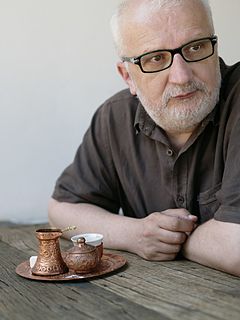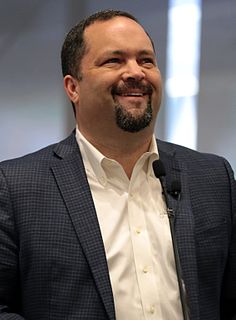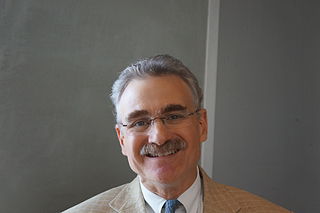A Quote by Zygmunt Bauman
If you look back on the history of the 20th century, the 19th century or even to the ancien régime of the 18th, you will see that first people rebelled against the order of the things because of lack of liberty, and demanded more freedom. And when they got more freedom, they got frightened, and they desired more security for a change. After a while, they started complaining, although more secure, they also become more dependent and rule-bound.
Related Quotes
I was really interested in 20th century communalism and alternative communities, the boom of communes in the 60s and 70s. That led me back to the 19th century. I was shocked to find what I would describe as far more utopian ideas in the 19th century than in the 20th century. Not only were the ideas so extreme, but surprising people were adopting them.
We've wanted to produce more in the 19th century and the 20th century in order to give man the possibility for more dignified human life; but actually what has happened is that production and consumption have become means - have ceased to be means and have become ends, and we are production crazy and consumption crazy.
I think the twenty-first century happened, basically. That this century started on 9/11. And basically, it's been a century of counter reaction to globalization and the meritocracy. And a good century for 72 nations have gotten more authoritarian. We've had Brexit. We have Le Pen rising in France. We've just got a lot of these types all around the world. And the people who are suffering from globalization and the meritocracy are saying, "No more. You know, we get a voice too."
Growing up as a black kid with a white father who loves you, who affirms you, who was part of your life is fundamentally different than what black people in my family were subjected to in the 19th century or the 18th century. But unfortunately, it doesn't change the old racial order. I think we need to let the old racial order just stay where it is and not seek to improve upon it. Not try to create more racial categories, because all that does is it makes a race stick around longer.
When I first started to do fashion shows I didn't have the budget to hire top models so I would cast women who inspired me, and ask them to walk how they walked. I was doing a mise en scène, which for me was normal. I love for people to see my clothes, but it was more about the attitude of the girls. The revues of the late 19th century/early 20th century were very much a reflection of what was happening in society and politics, and for me that is also the role of the fashion designer.
You beg for happiness in life, but security is more important to you, even if it costs you your spine or your life. Your life will be good and secure when aliveness will mean more to you than security; love more than money; your freedom more than party line or public opinion; when your thinking will be in harmony with your feelings; when the teachers of your children will be better paid than the politicians; when you will have more respect for the love between man and woman than for a marriage license.
If you look at the early nineteenth century you see the idea that we educate children to be voters and to be participants in our popular democracy. And then at the turn of the century when more and more immigrants are coming into the schools, Americanization becomes a more explicit part of the agenda.
Filmmaking materials are in the hands of more people now than ever before. I would like to think that the more people have these tools, the more people will learn how to use them, it's another argument I would argue for, personally, for art's education. Because there are kids who aren't that literate in screen language and they've got to know how people select shots, how people edit audio, how people combine things to make what they see on the screen. It would be like the 15th century or the 16th century in Germany, and somebody amends a printing press and you don't know how to read and write.





































